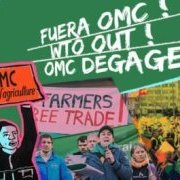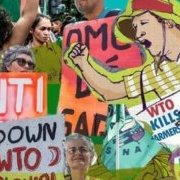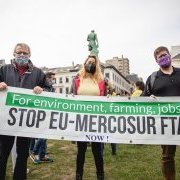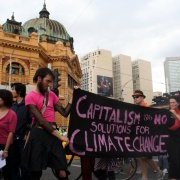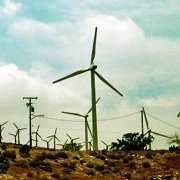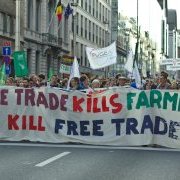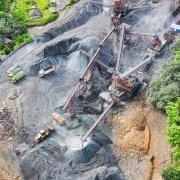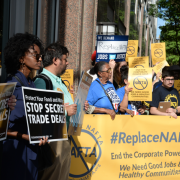27-Feb-2024
La Via Campesina
La Via Campesina’s Statement and Open call for Endorsement
11-Sep-2023
La Via Campesina
The peasants, small-scale food producers, wage and migrant workers and indigenous communities of La Via Campesina will draft an alternative trade framework, leveraging our collective knowledge of agriculture and food trade to ensure no one goes hungry.
10-Jun-2022
Inequality.org
As leaders gather in Los Angeles, a reflection on the past two decades of battles against neoliberalism and for a more just and equitable alternative in the Americas.
30-Mar-2021
New Internationalist
The newly appointed UN Special Rapporteur on the right to food believes that trade reform may be the key to solving world hunger. He speaks to Hazel Healy about accountability, conflict and the meaning of ‘fair’.
18-Jan-2021
Trade Justice Movement
Tackling the climate and environmental crises is more urgent than ever and global momentum to do so is building rapidly. Yet international trade law lags behind and threatens to choke off serious action.
18-Sep-2020
Institute for Policy Studies
Over the last several decades, US trade policies have failed most Americans. Under the guise of “free trade,” special interests have captured trade policy to extract wealth at home and abroad and left working people to bear the costs.
30-Apr-2020
Trade Justice Movement
The Trade Justice Movement has published model Sustainable Regulation and Trade Agreements for the EU-UK relationship, which have been developed in partnership with trade unions, environmental organisations and justice groups.
12-Dec-2019
Foreign Policy in Focus
Here’s what a progressive trade agenda that actually protects people and planet would actually look like.
25-Nov-2019
Open Democracy
Progressive politicians need to not just react to the neoliberal trade agenda and its right-wing disruptors, but radically transform the rules governing North American trade.



